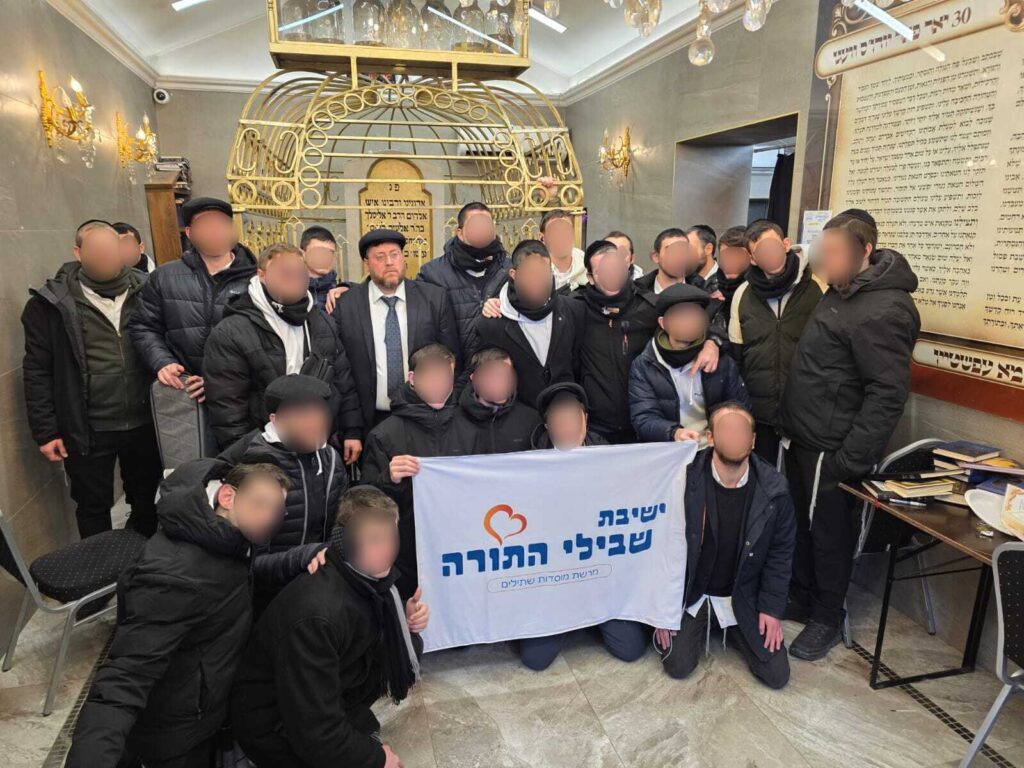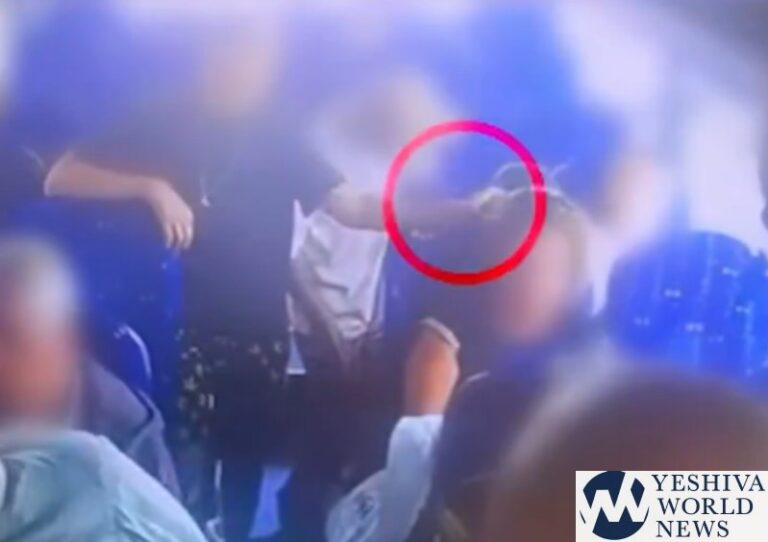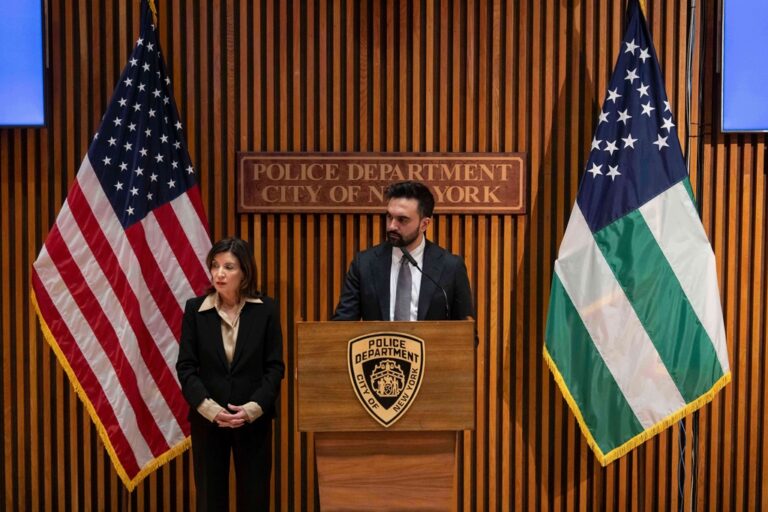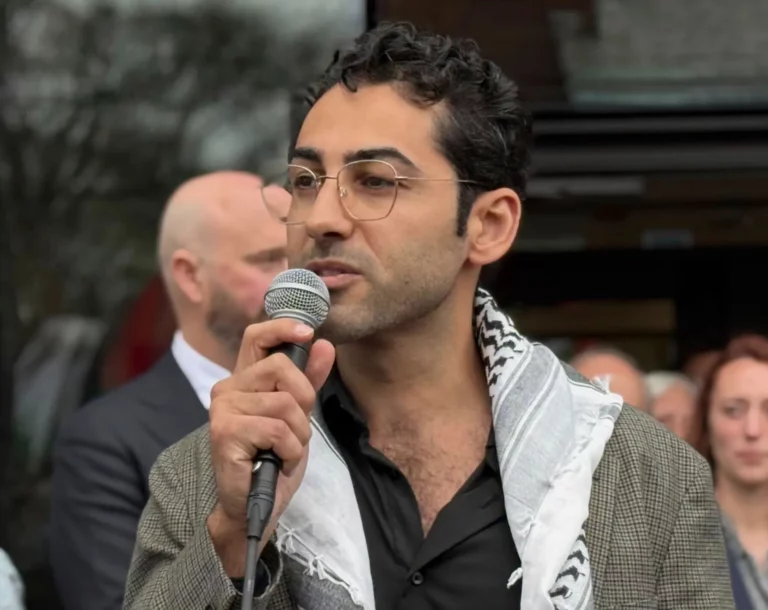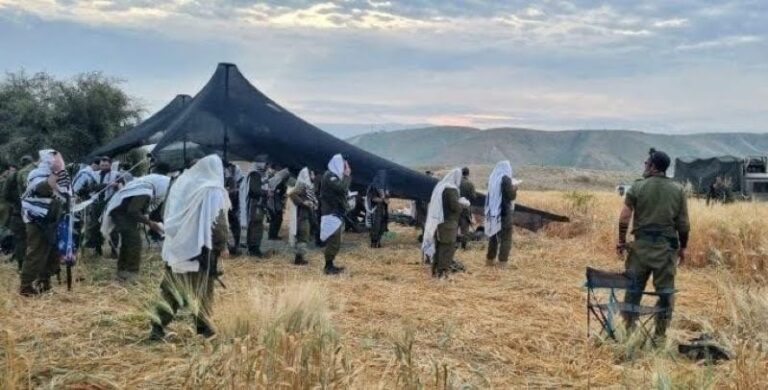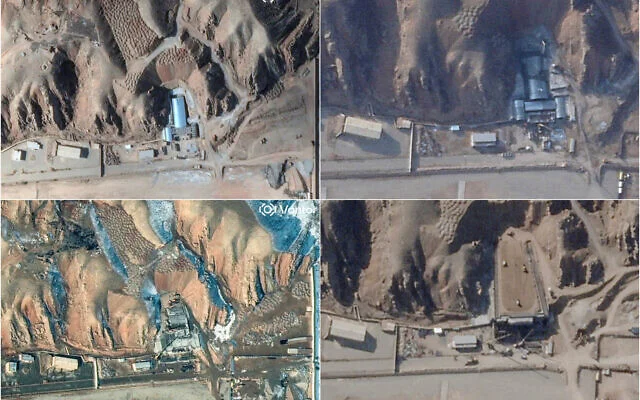Ben Horodenker
For the yeshivah students of Shtilim, the eight-day journey to Poland was a transformative experience of connection, memory, and inner awakening—designed specifically within the inclusive, nurturing framework that defines the Shtilim special education network.
The group was accompanied by Rabbi Chaim Biton, a minister in the Education Ministry; Rabbi Yisrael Reisner, Shtilim’s visionary founder and chairman; Rabbi Natan Tzvi Finkel, Rosh Yeshivah of Ohalech; Rabbi Moshe Berman, Rosh Yeshivah of Shvilei HaTorah; as well as devoted educators and rabbanim from the Shtilim network. The experienced yeshivah staff provided a forum for the boys to digest and reflect on what they had seen and experienced, offering students with complex needs not only the tools for learning but opportunities for spiritual connection, pride in their Jewish identity, and personal growth.
“Polish soil is soaked in Jewish tears,” declared Rabbi Finkel, addressing the students with trembling voice and uplifted hands. “Every step we take here cries out from the past, telling the story of our people.” That moment—quiet, intense, and deeply moving—set the tone for a journey that would leave no heart unchanged.
Throughout the trip, students experienced a profound emotional and spiritual unfolding. “It felt like the souls of the martyrs were with us,” one participant shared.
“This wasn’t just a glimpse into history,” reflected Rabbi Yehoshua Bider, Mashgiach of Yeshivat Shvilei HaTorah. “It was a journey into each boy’s soul—a reflection of who he is, and who he is capable of becoming.”
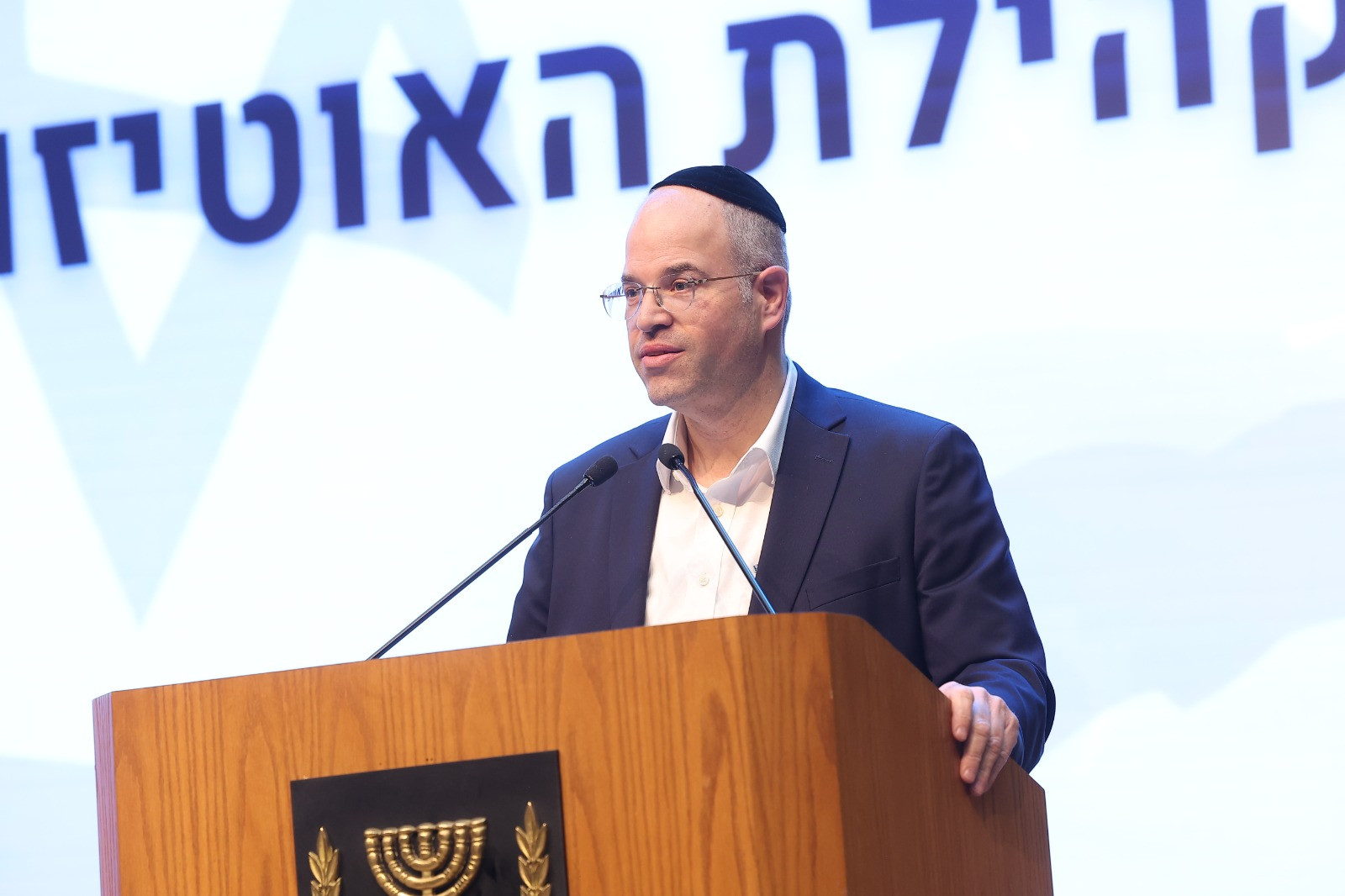
At the graves of Torah giants such as Rav Chaim of Brisk, the Netziv of Volozhin, Rabbi Elimelech of Lizhensk, the Rema, the Bach, and many others, the boys were introduced to a legacy of greatness and resilience. Shabbat was a sanctuary of strength and serenity, and on Motzaei Shabbat, spirits soared as melodies of faith filled the air, led by singer Pini Einhorn, the Neshama choir, and the soulful clarinet of Chaim Kirshenbaum. It was a celebration of Jewish identity—accessible, inclusive, and alive.
The next morning, the students received intensive words of preparation before heading to Majdanek, Treblinka, Auschwitz, and Birkenau. These visits weren’t only about remembering the past but also strengthening the inner core of each student and instilling pride in their Jewish identity.
One of the most searing moments came at the Children’s Forest, the site of a mass grave of young children. There, each student received a personal letter written by his parents. Surrounded by memories of thousands of children who never had a chance to grow up, the boys opened their letters. Rabbi Chaim Biton addressed the students: “As we stand here and imagine the children who were murdered al kiddush Hashem, our hearts break—but our truth stands strong. You are their legacy. You are the continuation they were denied. With your bodies, your souls, your Torah, your faith—you are our answer. You are the living proof of Am Yisrael Chai.”
Many of the boys responded instinctively—by writing letters of their own to their younger siblings. That sense of continuity, of belonging, is at the heart of what Shtilim works to cultivate every day: giving students with complex developmental needs the tools to build identity, meaning, and connection.
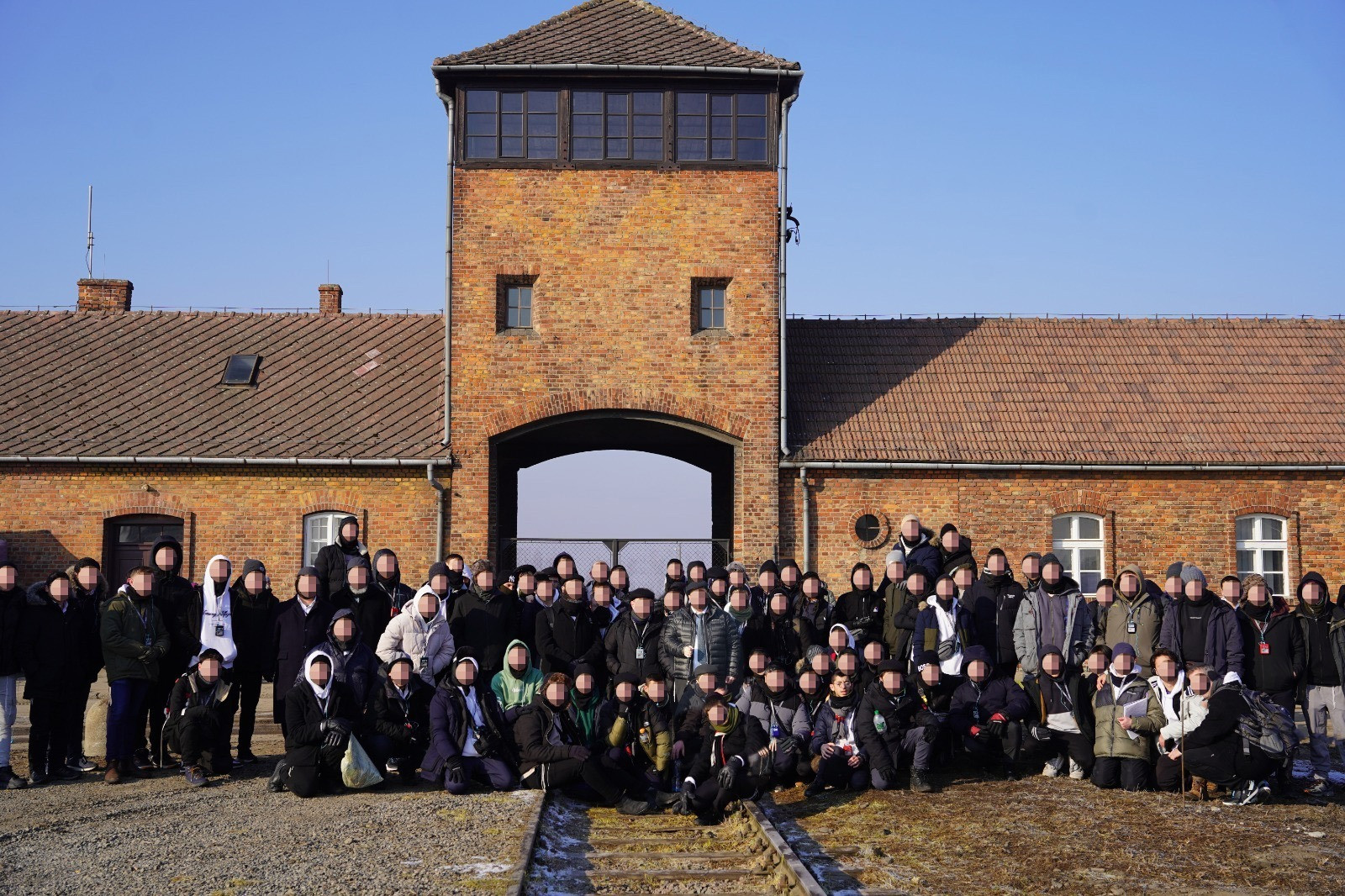
As the trip concluded, the boys stood in a circle shoulder to shoulder, arms around one another, singing Ani Maamin—a song of hope and eternal faith. Their voices carried far beyond that moment, echoing the truth they had lived all week: that every Jewish child, no matter his challenges, carries the strength of all preceding generations.
To learn more about Shtilim please visit https://shtilim.org/

